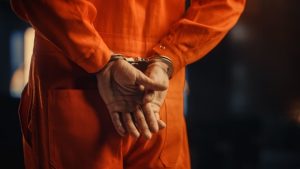Texas Senate Unites to Combat AI-Generated Child Pornography.
The Texas Senate has unanimously approved Senate Bill 20 (SB 20), a bipartisan effort to criminalize AI-generated child pornography. The bill, authored by Sen. Pete Flores (R-Pleasanton), aims to ban the possession of obscene images that depict minors—including AI-generated content, cartoons, and animation.
With a 31-0 vote, the bill now moves to the Texas House, where similar legislation is gaining traction.
Closing Loopholes in Texas Law
Currently, Texas law does not explicitly prohibit AI-generated or computer-created depictions of minors in obscene material if no real child is involved. SB 20 aims to change that, bringing Texas in line with 37 other states that have enacted similar laws.
"Technology has allowed the creation of this material to be easier, quicker, and more prevalent than ever before," Flores stated, emphasizing the need for legal updates to keep pace with AI advancements.
Lt. Gov. Dan Patrick, a strong advocate for the bill, highlighted the urgency of the issue:
"As Texas enters the digital age, our state must be very careful about our approach to artificial intelligence. With the proliferation of AI-generated pornography, steps must be taken to protect Texans, and specifically children, from harmful computer-generated content and the crimes that arise from it."
Strict Penalties for Offenders
Under SB 20, possession of AI-generated child pornography would be classified as a state jail felony, carrying penalties of:
✔️ Up to two years in prison
✔️ A $10,000 fine
✔️ Harsher sentences for repeat offenders
Another bill, Senate Bill 1621 (SB 1621), introduced by Sen. Joan Huffman (R-Houston), seeks to expand child pornography laws to include AI-generated material by defining the "depiction of a child" as both real and computer-generated.
"It is horrific how common this is becoming, that it is spreading," said Sen. Tan Parker (R-Flower Mound), a former Senate AI task force vice-chair. "In terms of critical items for this session, I don’t think there can be anything that is higher on our list of priorities than protecting our children."
AI-Generated Child Porn: A Growing Threat
AI-generated deepfake technology has made child exploitation content more accessible than ever. According to Adrian Shelley, Texas director for Public Citizen, a watchdog group:
➡️ In 2023, 95,000 deepfake images appeared on the internet—98% were sexual in nature
➡️ Half of these images depicted children
➡️ 15% of students reported knowing someone who had been featured in a deepfake image
Sen. Jose Menendez (D-San Antonio) condemned the use of AI to create child exploitation content:
"Deplorable, disgusting. There are not enough negative adjectives out there to describe people that would use computer software to depict a child in pornography."
Texas House Pushes for Stronger Laws
Texas House lawmakers are introducing additional legislation to expand protections and hold AI platforms accountable:
✔️ House Bill 581 (HB 581) – Proposed by Rep. Mary González (D-Clint), this bill would:
- Prevent AI-powered cyberbullying in schools
- Allow victims of AI-generated images to sue those responsible
- Require companies to set age limits for AI image-generation software
✔️ House Bill 481 (HB 481) – Filed by Rep. Ann Johnson (D-Houston), a former human trafficking prosecutor, this bill:
- Strengthens child pornography laws to include AI-generated depictions of real children
- Aims to protect people from viewing such content, citing evidence that consuming child pornography can lead to predatory behavior
"We can’t mess around with this or wait any longer for someone else to solve this problem," said Johnson.
She compared the bill to drug laws that criminalize possession to prevent harm:
"We are trying to protect people from viewing this stuff and effectively damaging their brains and turning them into predators. And that also protects potential victims."
The Future of AI Regulation in Texas
As AI technology evolves, lawmakers are racing to ensure child protection laws remain effective. With unanimous Senate support and growing momentum in the House, Texas is poised to become a national leader in AI-related child safety legislation.
Lawmakers insist time is of the essence. As Rep. González put it:
"If we don’t come up with a solution … that’s two more years that these kids can be harmed."
📢 What do you think? Should AI-generated child exploitation content be criminalized? Share your thoughts in the comments below.




















